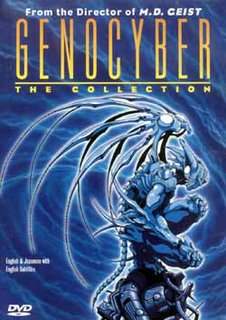 Over the last 10 years or so I have been forming a growing distaste for African American [AA] culture; that’s as bluntly as I can put it. When I say African American culture, I’m not talking about hip hop or the history of the AA. I’m talking about the accepted means of social communication, interaction, expression, attitudes, and beliefs widely had by African Americans; though this does include hip hop as well.
Over the last 10 years or so I have been forming a growing distaste for African American [AA] culture; that’s as bluntly as I can put it. When I say African American culture, I’m not talking about hip hop or the history of the AA. I’m talking about the accepted means of social communication, interaction, expression, attitudes, and beliefs widely had by African Americans; though this does include hip hop as well.
What’s my problem? Well I assure you, it has nothing to do with being black. That’s something to be proud of. There is a great legacy that was built by the generations of blacks that came before us. America owes a great deal of its own mainstream culture and history to African Americans. This fact can hardly be debated by anyone.
My problem is with the current state of African American culture which is embracing baseness and calling it blackness; the culture shouting foul at the “white man” and leaning on “Jesus” to save them; the emotionally insecure and intellectually scarce society riddled with an amazing inferiority complex. But these issues are not ours alone, they just happen to affect a disproportionate amount of our populace.
However, consider the more expressive cultural examples in the areas of language, arts, music, dance, and so on. Outside of language, African Americans thrive in these arenas. Unfortunately, at the moment, the lights of music, dance, and media arts are shone primarily on “commercialized” hip-hop, which has in turn, transformed the perception of African American youth and culture (as well as many other cultures world-wide) and has gotten them to value material wealth and guns, fast woman, and easy money, thereby cannibalizing any merit that might exist in the sea of glamour and ignorance.
This will always be the case with media though; it’s not an excuse. Every culture has entertainment of this type in some form. The difference is, American youth, being the liberal bunch that we are, actually act it out. Another issue is that American youth, especially AA youth, don’t receive a balanced ‘diet’ of media. Their senses are put under siege by ad after ad encouraging the decrepit lifestyle of a thug, gangster, or hoe.
Thirty Year Old Thugs
I remember being surprised when I discovered nudity, sexual content, and graphic violence were all acceptable to show on public TV in Japan. My first though was, “What about the kids? Won’t that mess them up?” After becoming more familiar with their culture and their media however, I discovered that because the Japanese have such a large range of genres and media outlets, Japanese youth are not likely to be brainwashed in the same way that American youth are. Instead there is a strong educational and business slant that is promoted in the Japanese culture.
 Because of this focus on their scholastic/professional life, there is really no time for Japanese Youth to be overly influenced by media on TV. Instead, their parents and their communities demand that they to do their best in these areas. (This does lead to other problems in their society however, such as a significant amount of stress, health disparities, and death from overwork; they actually have a common word used for someone who works themselves to death- karoshi).
Because of this focus on their scholastic/professional life, there is really no time for Japanese Youth to be overly influenced by media on TV. Instead, their parents and their communities demand that they to do their best in these areas. (This does lead to other problems in their society however, such as a significant amount of stress, health disparities, and death from overwork; they actually have a common word used for someone who works themselves to death- karoshi).
Contrast this with the typical American youth who spends the majority of their days plopped on the couch in front of the tube, listening to music, or playing games (computers and the internet now allow them to do all three at once). It’s the idle hands theory and corporate marketing campaigns depend on it.
 This blitz strategy works exceptionally well if the target audience has insecurities about themselves (such as their race), is predominantly ignorant (as in illiterate and looking for an excuse to cover up such a weakness), and is poor (feeling as if they have less than others and need to act out to cover these insecurities or embrace them, in the “I don’t give a F&@K!” sense).
This blitz strategy works exceptionally well if the target audience has insecurities about themselves (such as their race), is predominantly ignorant (as in illiterate and looking for an excuse to cover up such a weakness), and is poor (feeling as if they have less than others and need to act out to cover these insecurities or embrace them, in the “I don’t give a F&@K!” sense).
But so what, it’s a teen thing right? I mean, we all go through those times at some point in life, right? Sure. It’s just that African American youth tend not to grow out of it; hence the thirty year old thug phenomenon. The image and culture of the AA is further degraded by the fact that AA teens are having children, most of who end up fatherless and get sucked into the same mayhem at an even younger age. The cycle just continues.
I Had A Dream: Black Power In The 20th Century
 Imagine being driven into a wall at full force by a fire hose blasting you at 200 psi, disintegrating your clothes and gradually eroding your body to lifelessness. Now imagine if that was your grandmother being subjected to that same crowd control for simply standing on a sidewalk demanding the basic human rights that you enjoy now; you know, simple things like not being forced to work without pay, or the right to prosecute the persons who hung your pregnant wife from a tree, you know, simple things.
Imagine being driven into a wall at full force by a fire hose blasting you at 200 psi, disintegrating your clothes and gradually eroding your body to lifelessness. Now imagine if that was your grandmother being subjected to that same crowd control for simply standing on a sidewalk demanding the basic human rights that you enjoy now; you know, simple things like not being forced to work without pay, or the right to prosecute the persons who hung your pregnant wife from a tree, you know, simple things.
If you can imagine that, then it wouldn’t be far fetched to imagine that the child of your grandmother might hold certain reservations about the group of people who did that to her. Furthermore, it’s not too far out there to think that you and your children and you’re children’s children will hold these same views in the back of your minds for as long as there is a remembrance of it.

If you dramatize my little example and multiply it by a factor of 100,000, this should give you a clear indication of where the root of the animosity between the black and white races in America originates. Slavery; oppression; genocide… These things sound harsh and they were in fact harsher than we can imagine. We’re spoiled today by comparison.
 Due to the long history of slavery and inequality, the AA community began in a wounded and inferior state and has since then been lagging behind the rest of America, trying to catch up. It should be no surprise then that the voices for issues concerning the AA advancement in society are being drowned out in a system originally designed on top of their backbreaking labor. It will take much more time and energy to change that fact.
Due to the long history of slavery and inequality, the AA community began in a wounded and inferior state and has since then been lagging behind the rest of America, trying to catch up. It should be no surprise then that the voices for issues concerning the AA advancement in society are being drowned out in a system originally designed on top of their backbreaking labor. It will take much more time and energy to change that fact.
In that process for change though, there exists another segment of the AA population, one that originated from the era following the love and peace, Vietnam, Nixon-Kissinger days— the Pro-Black.
 Feeling the need to reshape the image of Black America, the many pro black groups, including but not limited to: The Nation of Islam and the Black Panthers, began an underground movement in AA communities to educate and lead their members towards the betterment of their people. There are many instances where this has been the case. African American communities found in cities like Atlanta, Charlotte and so on, are much more developed and you are sure to find the pro-black groups established and thriving in those productive areas.
Feeling the need to reshape the image of Black America, the many pro black groups, including but not limited to: The Nation of Islam and the Black Panthers, began an underground movement in AA communities to educate and lead their members towards the betterment of their people. There are many instances where this has been the case. African American communities found in cities like Atlanta, Charlotte and so on, are much more developed and you are sure to find the pro-black groups established and thriving in those productive areas.
I’m all for these positive aspects. There is nothing wrong with helping those who need to be helped, especially in your own communities. However, even in these productive movements towards change, the animosity against the “white race” remains a central point of reference used to bind the parties together; the rancorous and bitter feelings that the children of each race inherit from their ancestors endlessly propels the conflict.
The empowerment of people is my goal as well and I can respect anyone for working towards that. However, I think the focus on who is at fault is one that needs to be pushed aside. It really doesn’t matter who is at fault at this point. It’s much more about what needs to be done in order to fix the problem. Finger pointing is something that the weak and insecure rely on; acceptance is a virtue.
Just as corporations externalize their problems, AAs view their current state in the light of the offenses that took place in the past, hoping the government, God, or “somebody else” will take care of it all for them. They are not looking inside for strength, as their ancestors once did to take a stand; they are looking to place blame and reap the rewards without doing the work. And doing the work requires focusing on the issues at hand, not the issue from another era; though those issues should never be forgotten and always taken into consideration so that we don’t make the same mistakes.
It should also be noted, that if you are not part of this blame game, there is obviously something wrong with you, at least that’s what I am told…
With this segment making up the other predominant AA culture, there is little room left for the peace loving, intellectual, race-fraternizing, non-Christian, honestly expressive Blacks like me; we don’t act “black” enough.
This brings me to my main point. If African American culture is currently one predominantly based around this idolized “nigga” (their word, not mine), the thug savage, or the angry, political subversive seeking to reprove white society for slavery, what happens to the other members of this pseudo-culture who fall outside of these overwhelming segments? We get swept away by other cultures, of course.
FUUUUSION!!
The easiest culture for AA’s to get abducted by is Anglo-Saxon culture. For the most part, African American culture, in any form, is still largely based on Anglo-Saxon tradition. This might have been a strange and surreal contrast at one point in time, but as we have all seen, westernization is real and many-a-countries have conformed. Yet, countries like China and Japan still haven’t lost their sense of culture; where as when African Americans assimilate they become completely detached from their origins all together.
Division, assimilation, reformation, or integration. With globalization on the up and up, I think the AA culture will head into one of these four directions, if not a few.
Division- A large enough segment of the AA community will develop a coherent and self-reinforced culture allowing it to stand on its own outside current American standards or traditions. It would be interesting if it included the development of culture specific language. The Tibetans come to mind.
Note that this is already the case to some extent. The only thing is, most of the AA communities are spread out and confided to relatively small communities or ghettos. They tend to be more bound by the media of AAs (including newspapers, magazines, TV, music etc.) than by any sincerely developed cultural traditions.
Assimilation- American culture conforms to current AA culture standards or vice-versa. It’s unlikely this will ever happen, but it’s interesting to note that assimilation is active amongst all cultures during this era of globalization. Hip hop has also been a large part of that assimilating force. The basic idea behind assimilation is standardization, which can be scary or harmonious depending on how you look at it.
Reformation- Similar to the concept in division, except a new culture is not developed; the culture itself is reformed from the inside out. I think there is a higher possibility of this happening, given the proper economic and social conditions; when the majority of AA’s are at least shoulder above the poverty line and they get off the race train to focus on the real issues.
Integration- The most likely scenario. As globalization occurs, nothing of particular cultural significance will develop within the AA community. They will just become another market on the ven diagram to have the trends they set fed back to them or hi-jacked by other cultures completely.
This is the current state of things and the reasons for it are many and varied. That’s another rant for a future post though. My main point is to highlight the state of AA culture and to pinpoint my distastes with it in contrast to the abundance of culture I find in the Japanese society. This helps me understand why I may be so attracted to Japanese culture.
That being said, there are things in current AA culture I do enjoy including the idea of “soul” or rhythm; to be smooth and confident in body and form. That’s a valid cultural development I think (and one that the Japanese definitely seem to lack overall). There are many more and when I can find them I hold them up as shining examples. Alas, they are too few and far between for me.
What Culture Does For Me
The interaction amongst and between groups of people is marked by elements of culture. The Japanese bow, the French kiss, and African Americans slap hands and bump shoulders. The roots of such established cultural trends run deep through the community and give them an accepted social interface to deal with everyday human activities.
Initially I was one with the AA community for lack of exposure to anything else. Although I am proud to be what I am, my nature is a curious one and I am attracted to the strange, exotic, and different; not for lack of love for self, but for a deeper love of life and all it has to offer. When I crossed cultural boundaries though, I began to compare and contrast and discover different things in each culture that I have a personal preference for. Thus I began to assimilate the cultural features of the Japanese that interested me and replace the AA cultural features that I did not value.
This is where I started to see the disproportionate shift of AA cultural traditions to Japanese ones and thus why I have performed this examination. After going through these cultural elements, I found that the AA versions of them were either underdeveloped, contrived, or un-meaningful (i.e. sagging pants, use of self-derogatory terms, disrespect for women, compulsive need to stand out or otherwise be “hard” etc. etc.).
Because I am consciously aware of this issue, it makes it hard to interact with the AA culture in the way they currently want to interact with me and I become an “other”. So my question from there was should I put in the work to try and change the culture or simply keep developing my “own” culture based on the principles of the many cultures that exist. As usual, I decided to stride the middle line and do both.
It All Comes Back To Me
I have ideas about how I can help effect a change in the AA community as well as the global community through education (which is one of the major sources of the problem in AA society). Education will help develop the AA culture and perhaps can bring a significant value to it, which I have yet to see. But the work that will hold those answers and methods will be all inclusive (Seda) and for the time being I must continue to expand my own horizons and perspectives to establish the principles I want to teach. So I’m off to take the next step. Kanarazu! [Without Fail!]
-~-










